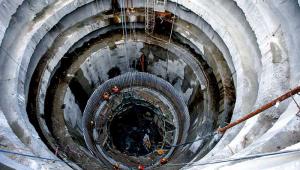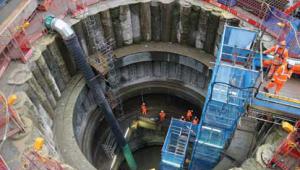The think-tank praised the government for planning to invest £245bn over the next five years in high-quality infrastructure as a means to bolster the economy.
But it warned that government “is not always adept at identifying the best investments”.
The IfG cited projects, such as the controversial Millennium Dome and London Garden Bridge, schemes as examples of poor choices by Whitehall.
In April London mayor Sadiq Khan refused to release any more public funds to support the Garden Bridge scheme, which had already cost taxpayers £60m.
This followed a report earlier in April from Margaret Hodge, which said the £200m project did not offer value for money and the government should scrap it despite already sinking £60m into the idea.
In its What’s wrong with infrastructure? report the IfG argues that poor investment decisions could lock the economy into inappropriate infrastructure systems for many years, with significant harmful effects on future prosperity.
Nick Davies, research manager and report co-author, said: “Britain desperately needs upgrades to its infrastructure.
“But too often projects are given the green-light based on questionable assumptions, a lack of strategy and without learning from past mistakes.
“Government decision-making must improve significantly if we want to reap the benefits of smart infrastructure investment.”
The report warns that picking the wrong infrastructure projects can lead to white elephants – projects that deliver scant economic dividends compared to better alternatives, wasting public money in the process.
In addition it says bad infrastructure decisions are often extremely difficult to undo.
This report comes after the publication of a National Audit Office appraisal of the government’s approach to the Hinkley Point C nuclear power plant project which it deemed as “risky and expensive”.
The IfG listed six reasons why the UK struggles at times with major infrastructure plans.
- There is no national strategy for infrastructure investment
- Government does not devote enough attention to assessing early options
- The more ambitious the forecast, the more questionable the model
- Ministers and senior civil servants can fail to understand project risk
- Government finds it difficult to make decisions which create concentrated losers
- Inadequate evaluation misses the opportunity to improve future projects.











